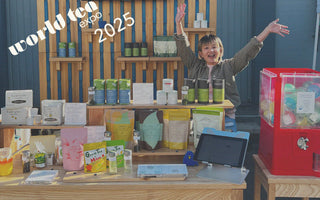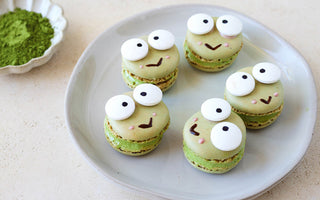There are two main breakfast drinks around the world: tea and coffee. Do you know how they compare? Try out this quick little quiz and see what you know when it comes to comparing these two perennial morning favorites.
1. Which is Older?
Tea is undoubtedly the elder of the two beverages. Indeed, tea is thought to be even older than wine! Tea has been accompanying meals for almost 5,000 years, which is most of humanity’s documented history.
Coffee, on the other hand, only entered the arena in the 11th century at the earliest. Its use was high in the Middle East for some time before entering the western world in the 1700s. Coffee’s actual discovery is still left open to interpretation since no one is quite sure how it came to be used by humans.
Both drinks are venerable, but when it comes to history, there are few drinks that can compete with tea. Depending on who you ask, tea may even be older than beer, which is most often considered the oldest manufactured drink!
2. Which Has More Caffeine?
Tea loses out in this category, having only 45–70 mg of caffeine per cup. Black teas can reach the upper end of this scale and even be comparable to a weak cup of coffee, however.
On the other hand, black coffee contains 95–200 mg of caffeine per cup. By volume, it clearly has more of the good stuff, but there’s a little bit more to the picture here. Both contain a lot more than caffeine, but tea has some very interesting compounds to accompany your caffeine fix.
Tea is less likely to make you jittery since it contains a compound called L-theanine, which balances caffeine while providing a bit of an extra boost. So it comes out to a net draw if you’re looking to boost energy levels.
Those with anxiety should give tea a shot over coffee if they’re not willing to kick their caffeine habit. L-Theanine is actually an anxiolytic, helping to calm a person down. That’s why the energetic buzz from tea is much more subtle and calm!
3. Which is Healthier?
Both drinks have some healthy qualities.
Tea is a known source of antioxidants, which help prevent damage to your DNA from agents called free radicals. The profile of chemicals in green tea, for instance, just seems to make you overall healthier.
Less inflammation, less heart disease, antiviral, and even neuroprotective properties are all found in the tea leaf.

Meanwhile, coffee also has a great reputation for being healthy. A meta-analysis shows lower mortality for all causes across the board. It also showed some minor harmful effects, but they seemed to even out once the study took smoking into account.
Coffee’s health benefits are far more controversial, however. Studies are conflicting and ongoing.
We’re going to have to give this one to tea. While coffee may have some great health effects, tea has a more stable relationship with studies, and the polyphenol compounds within it are all healthy stuff on their own.
4. Which is Better for Weight Loss?
Caffeine is known to increase the metabolism of those who drink it. Unfortunately, the effects taper off as your tolerance to the compound increases.
Coffee’s weight-loss effects are primarily derived from its caffeine content. The effect is, therefore, short-lived, and using coffee to promote weight loss requires cycling it in and out.
Tea, on the other hand, seems to have a lasting effect on the metabolism, which is sustained despite daily tea drinking. It may also come from the fact that tea drinkers tend to abstain from sugary drinks during the day, but many people drink their tea sweetened.
Neither is a magic bullet, and both can help, but tea seems to be the better of the two for those who are looking for a smaller waist.
5. Which is More Widely Consumed?
Those who live in the Western world might assume that coffee is the drink of choice around the world. That’s certainly not the case, but which is more widely consumed?
Tea, by a good margin. The per capita consumption of tea is second only to bottled water in the beverage industry. It’s simply the most widely consumed flavored drink around!
Actually, coffee has some competition here as well. Coffee is actually behind carbonated drinks like Coca-Cola when it comes to worldwide consumption. The impression an American might get that everyone drinks coffee is just wrong; when it comes to worldwide popularity, nothing beats tea!
How’d You Score?
There are some surprises when we compare tea and coffee, in both their histories and their inherent physical qualities. Neither is a bad choice for the morning, but in the end, it appears that tea simply wins out in most categories. How did you score on this short quiz?
About The Author
Kate MacDonnell, CoffeeChannel
Kate has been a coffee enthusiast since she could reach the kitchen counter and a writer since she could hold a pen. A native of Colorado, she loves drinking amazing coffee all over the world and has an ever-growing collection of coffee gear.
She’s sipped espresso with yuzu in Thailand, goat milk caramel lattes in Mexico, buttery white coffee in Malaysia, and cream cheese coffee in Korea. At a coffee plantation in Tanzania, Kate roasted coffee beans over an open fire, which probably still smells like coffee. Trust us: you can’t get that aroma out of your hair! At home, her favorite brewing method is smooth, clear Chemex, although the Wacaco Minipresso is a close second. She enjoys writing for coffee websites and sampling every kind of coffee known to man.
Get Free Bonus Books

Sign up for free to the Green Tea Club to get advice and exclusive articles about how to choose Japanese Tea, and tips, tricks, and recipes for enjoying Japanese tea.





